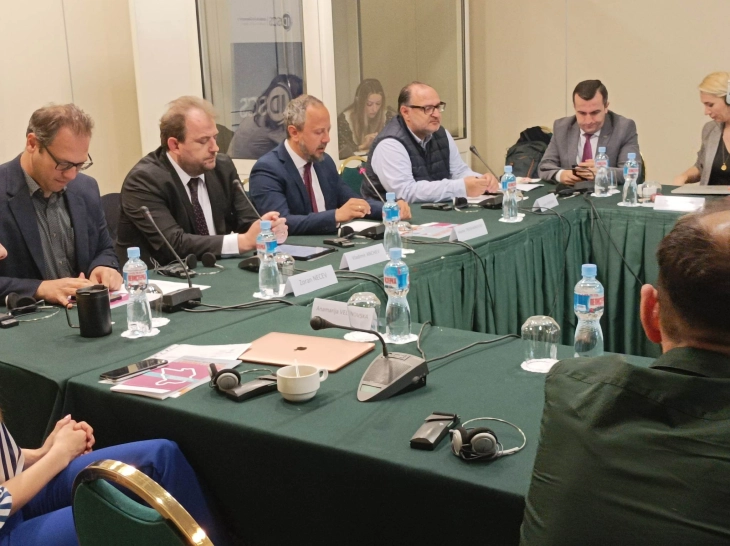Analysis: Crisis management institutions to be managed by professionals, not party-nominated cadres
- The institutions that manage crisis should be united in a single body, because there is confusion over who is in charge of what; they should be managed by professionals, not party-nominated cadres, and they should be provided with the necessary technical and professional staff, concluded experts at Thursday’s “Crisis Prevention and Critical Infrastructure Management in the Western Balkans” panel, held by the Institute for Democracy Societas Civilis Skopje (IDSCS)
- Post By Angel Dimoski
- 13:25, 4 May, 2023

Skopje, 4 May 2023 (MIA) – The institutions that manage crisis should be united in a single body, because there is confusion over who is in charge of what; they should be managed by professionals, not party-nominated cadres, and they should be provided with the necessary technical and professional staff, concluded experts at Thursday’s “Crisis Prevention and Critical Infrastructure Management in the Western Balkans” panel, held by the Institute for Democracy Societas Civilis Skopje (IDSCS)
At the panel, it was concluded that it is necessary to secure the required resources for the crisis prevention institution through the public procurement action plans proposed by each institution. Additionally, it is extremely important that the critical infrastructure is resilient, sustainable, and capable of addressing crises in the most appropriate way.

“A systemic optimization is necessary. This means there is a lot of overlap between the crisis management institutions. Ideally, these agencies would be united in a single body. Another issue which is very important is the staff. Investments have to be made, and specific funds must be allocated for the people who will manage these systems and possess specific expertise, such as IT engineers, which are lacking,” said IDSCS President Marko Troshanovski.
According to the latest research, the crisis management systems of the Western Balkan countries are on different levels of development. A joint, comprehensive approach aimed at establishing regional coordination institutions should be an imperative for the governments of the region.

“What we should be aiming for is a comprehensive, joint approach that will enable a joint, coordinated response to crises. There is a lack of technical and professional expertise in management. This means we shouldn’t allow ourselves to have political or party-nominated individuals in managing positions in these institutions, because they are exceptionally important for the quality of life. Cooperation with the academic community, private sector, research and development sector is necessary because the topic, regardless if it concerns cybersecurity or food security, requires specific knowledge which isn’t always available to the state,” said Troshanovski.







